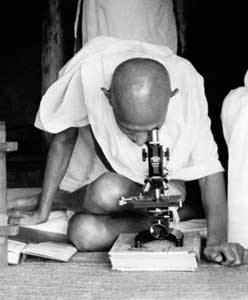The doctors of The Sopranos
The Sopranos is a show about the frailty of mafiosi; because of this, it's a show about the power of medicine.
Tony Soprano's sessions with his psychiatrist frame the show by showing Tony's psychological frailty; in fact, the whole show started with Tony going to the psychiatrist because of panic attacks.
After a long struggle, Tony has basically given in to the psychotherapeutic approach to his own narrative. This week, Dr. Melfi asked, "Are you sure you aren't reading too much into this?" Tony replies, "I been comin' here for years. I know too much about the subconscious now."
Another running theme of the show has been the top bosses getting knocked down not by their enemies, but by their own physical frailty.
This week, New York boss Johnny Sack got bad news about his lung cancer, first from a specialist he flew to see, and then from a fellow inmate working as a hospital orderly. The orderly had been an oncologist, specializing in liver cancer, before shooting his wife and two others. "You saw Cohen?" the oncologist-orderly asks Sacks, flipping through Sack's chart when the prison doctor isn't looking. Sacks asks, you know him?
"I saw him talk once at an ASCO meeting." (That's American Society of Clinical Oncology to you, bub.)
The oncologist-turned-orderly is film director Sydney Pollack, who looks and acts exactly right for the role. I've seen a dozen internists who look and talk just like this guy. (Tony's psychiatrist's psychiatrist is played by film director Peter Bogdanovich, who does look like a psychiatrist.)
First Pollack's oncologist character tells Johnny Sack he should live longer than Dr Cohen has told him. Then, as the disease progresses, he says, "The aggressiveness. It surprises me. I've gotta concur with Cohen."
Johnny Sacks has brain metastases ("The headaches", he says, when Cohen tells him, recognizing the correlation of disease progression and symptoms); Phil Leotardo is still melancholy after his 5-vessel CABG; Tony had his long stay in the ICU.
And Paulie is super-proud of himself for "beating" prostate cancer. He thinks he's a badass for that; when Paulie proudly contrasts his survival to the death of Johnny Sacks, he thinks he's comparing like and like. Actually, comparing localized prostate cancer to metastatic lung cancer is like comparing Paulie Walnuts to Johnny Sack, seriousness-wise. (Though metastatic prostate cancer can be terribly painful and frighteningly lethal, localized prostate cancer is extremely common among older men, and more people die with it than of it.)
The feds make their mark from time to time, but they're mainly annoyances. On The Sopranos, the only people who are always more powerful than the mob–even in prison, there's an oncologist who tells Johnny Sack he's going to die–are doctors.
It makes sense. Doctors are probably the only people who can illuminate a mobster's deep psychological and physical frailty, and still have the mobster thank them for it. That's why a show that is about the frailty of mobsters needs doctors.
Postscript: I was struck by how Leroy Sievers, who's blogging about his cancer on NPR.org, saw this episode differently. He was struck by the episode (and a little bothered by it, despite his wishes not to be) because Johnny Sack's course was so realistic. I was impressed by that too, but I didn't think about it much. It just made sense. If they're going to show the underlings being shot to death, why not show the bosses die of cancer with the same realism? But the fact that the cancer part didn't bother me (while the gunshots still make me wince) probably just confirms that I've spent a lot of time in the hospital, and on oncology floors specifically. Johnny Sack's death seemed ordinary to me. I'm sure that's different from how I would have seen this three years ago.





No comments:
Post a Comment